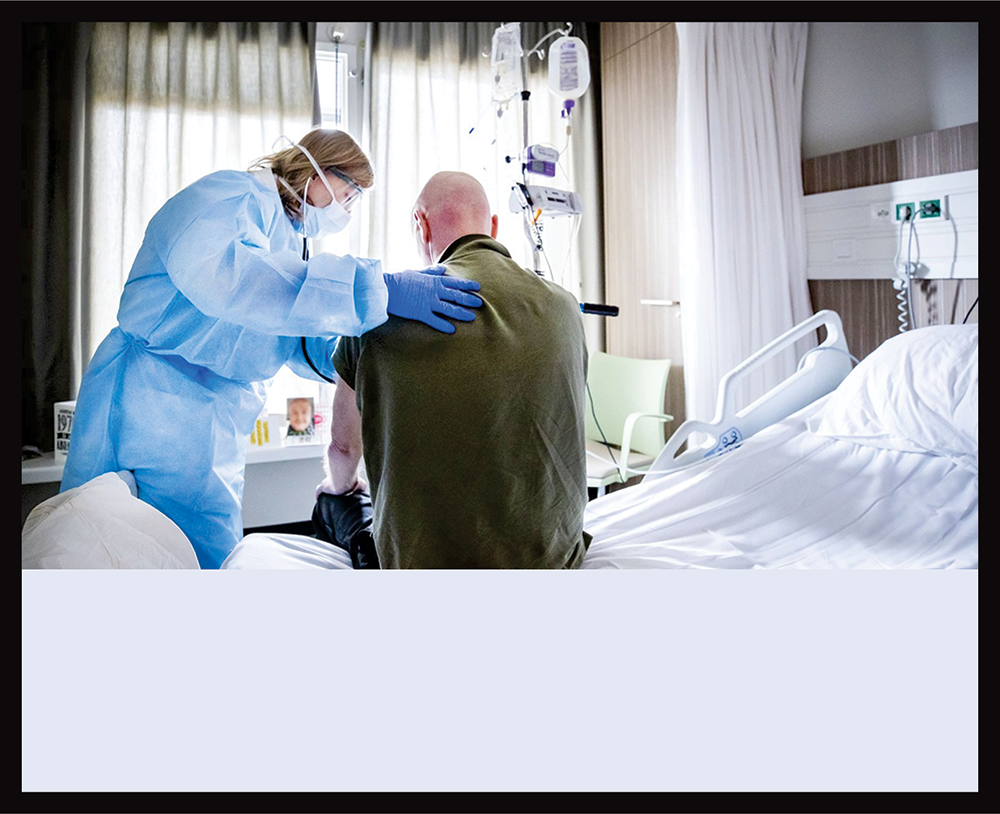


If you develop symptoms of COVID-19, the medical priority will be to isolate you and treat the COVID-19 infection rather than your cancer. Your cancer treatment will resume once you have recovered sufficiently from COVID-19.
Attending hospital during the COVID-19 pandemic can put you at risk of infection. Therefore, to keep you safe, your cancer care may be adapted while the pandemic is ongoing. The aim is to reduce your time spent in a hospital setting whilst still providing the care that you need.
To minimise face-to-face contact, you will be offered telephone or video consultations, particularly for pre-treatment meetings and follow-up appointments. If you usually have blood tests done at a hospital, these may be relocated to a local centre instead. Medication may be delivered to you, or a drive-through pick-up point may be arranged. Repeat or electronic prescription periods are also being extended in many areas to allow patients to access their home-based cancer treatment (e.g. oral treatments) without the need for additional prescribing appointments during the pandemic.
Impact of COVID-19 on cancer screening
It is likely that routine screening appointments, for example cervical screening tests and mammograms, will be cancelled or postponed for the foreseeable future.
Tests to diagnose or stage cancer might be delayed if the risk of infection with coronavirus outweighs the benefits of the tests. This might apply to patients who have shown signs of a cancer that has a low risk of rapid progression, such as minor suspicious findings on mammography. This will be discussed on a case-by-case basis.
In some patients, staging procedures may be limited to those that are the most crucial to guide treatment.
Your cancer treatment plan may be adapted in order to minimise the risks to your health resulting from the COVID-19 pandemic. The adaptation strategy may differ depending on the therapeutic goal; for example, curative treatment is more likely to continue as planned to ensure the best chance of remission, whereas the risks of COVID-19 in patients undergoing palliative therapy may outweigh any potential benefits of treatment.
ESMO is applying a tiered approach to guidance on the management of patients with cancer during the COVID-19 pandemic. This approach considers the patient’s condition, the urgency of the planned cancer treatment and its anticipated benefit in light of the potential risk of COVID-19 associated with the logistics of receiving treatment, as well as the available resources to safely provide treatment.
In most countries, non-essential surgery is being postponed for the duration of the COVID-19 pandemic. For patients with cancer, the potential risk of disease progression following a delay in surgery has to be balanced against the potential exposure to coronavirus and risk of serious complications from COVID-19. If the surgery requires post-operative intensive care, the current availability of intensive care units will be considered as part of the decision-making process.
It is very important that you continue to lead a healthy lifestyle during the COVID-19 pandemic; this will enable you to cope better during cancer treatment and the follow-up period.
It is crucial that you have a healthy diet so it’s important to make sure you can access the food that you need, such as fresh fruit and vegetables.
If you receive nutritional supplements and support from a dietician, these will continue throughout the pandemic.
To stay fit and healthy, you should take as much exercise as possible. This can be a challenge when confined to your home, but you can take walks in your garden, walk up and down stairs or follow online exercise classes. Any way you can move around will help you to stay strong and fit.
Remember to maintain your personal hygiene and contact your doctor or nurse if you have problems washing or bathing; they can provide you with advice to make these tasks easier.
It is very important to look after your mental health too during these challenging times. Stay in regular contact with friends and family via phone, email, social media and video calls. You should also contact your doctor or nurse if you feel you need additional emotional support from a psychotherapist or counsellor.